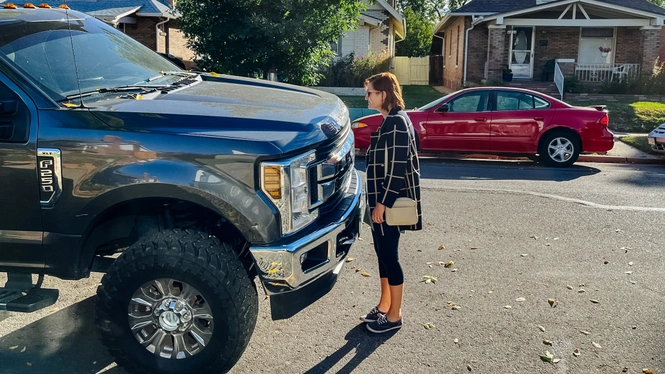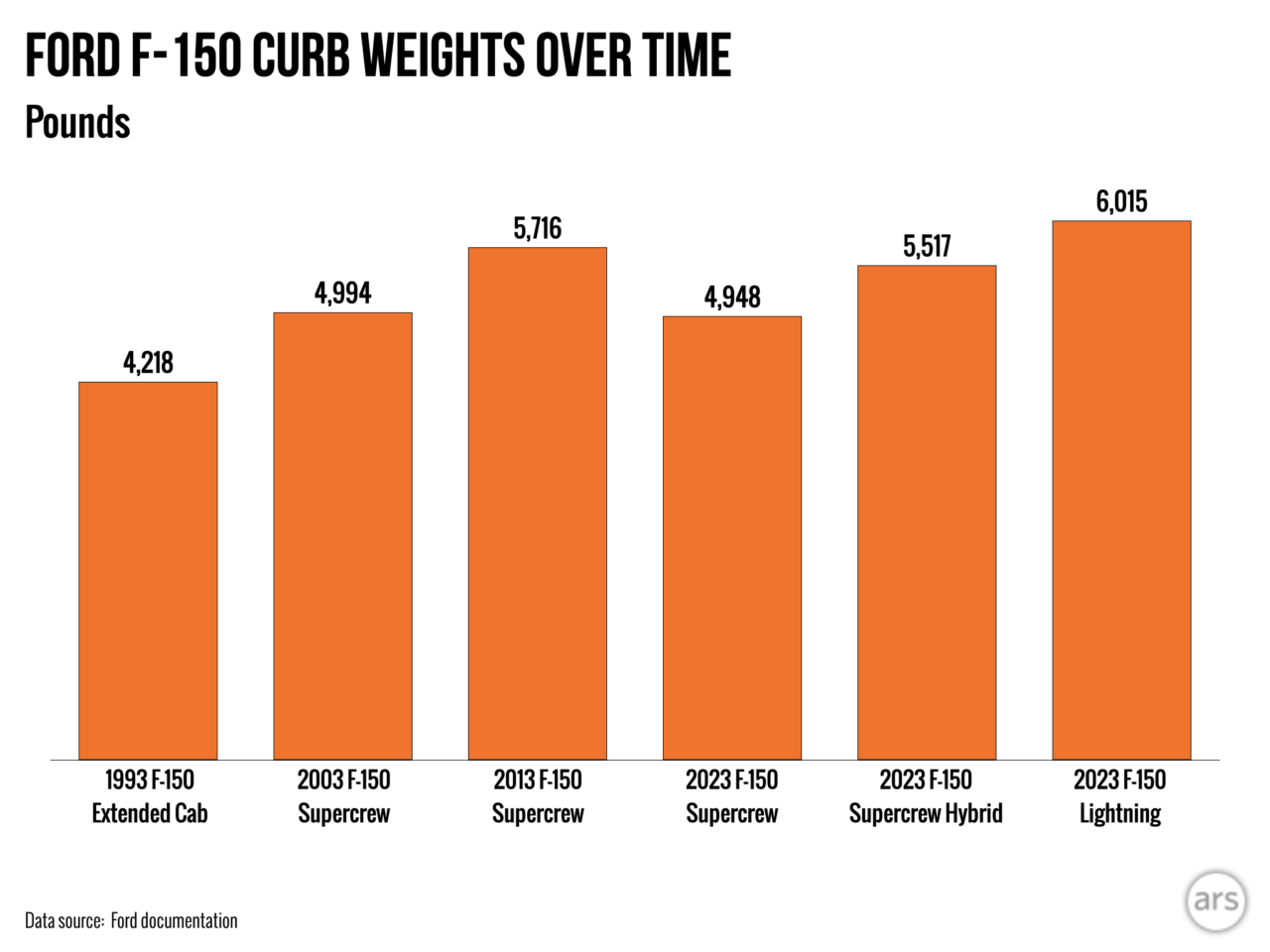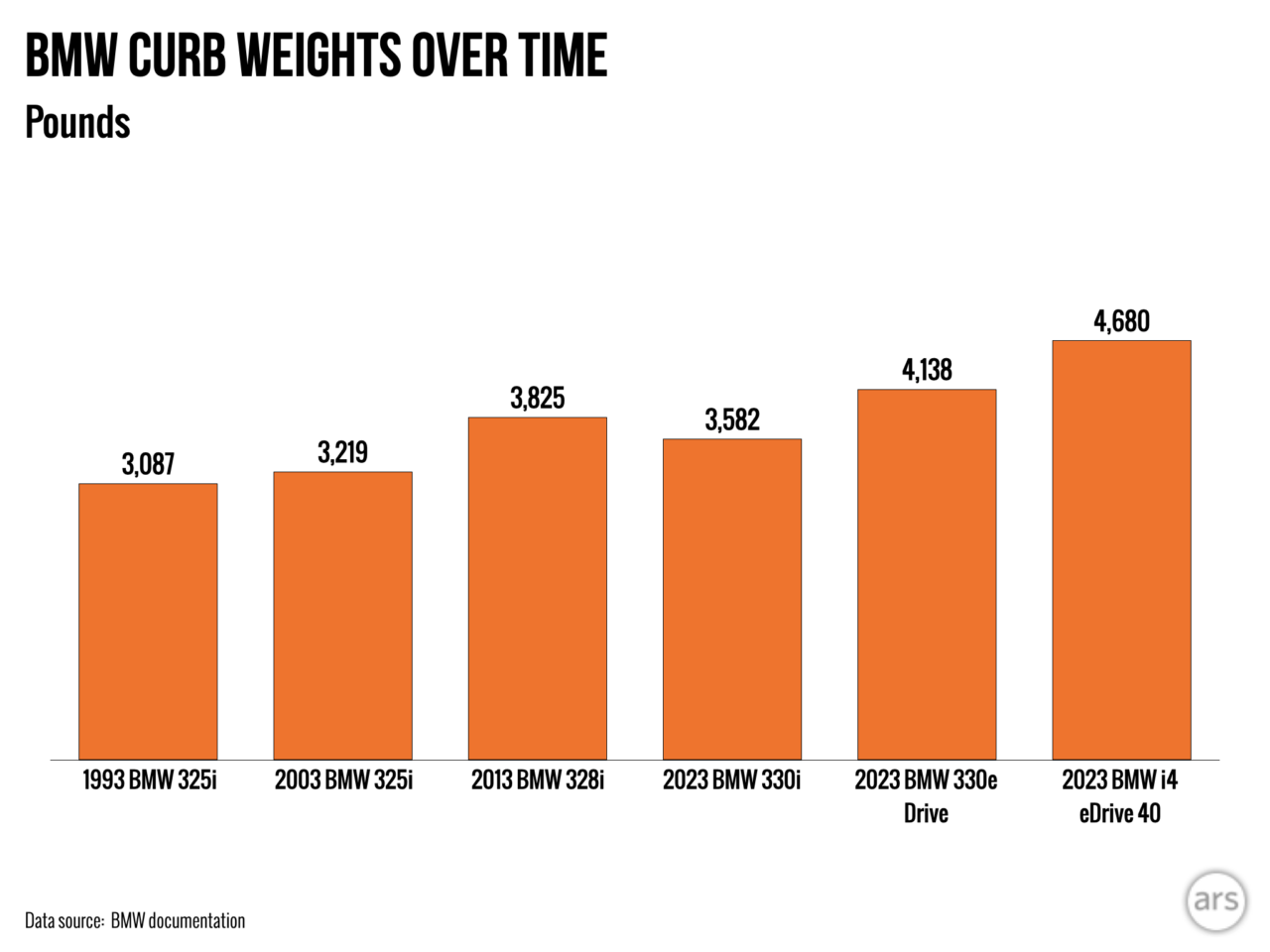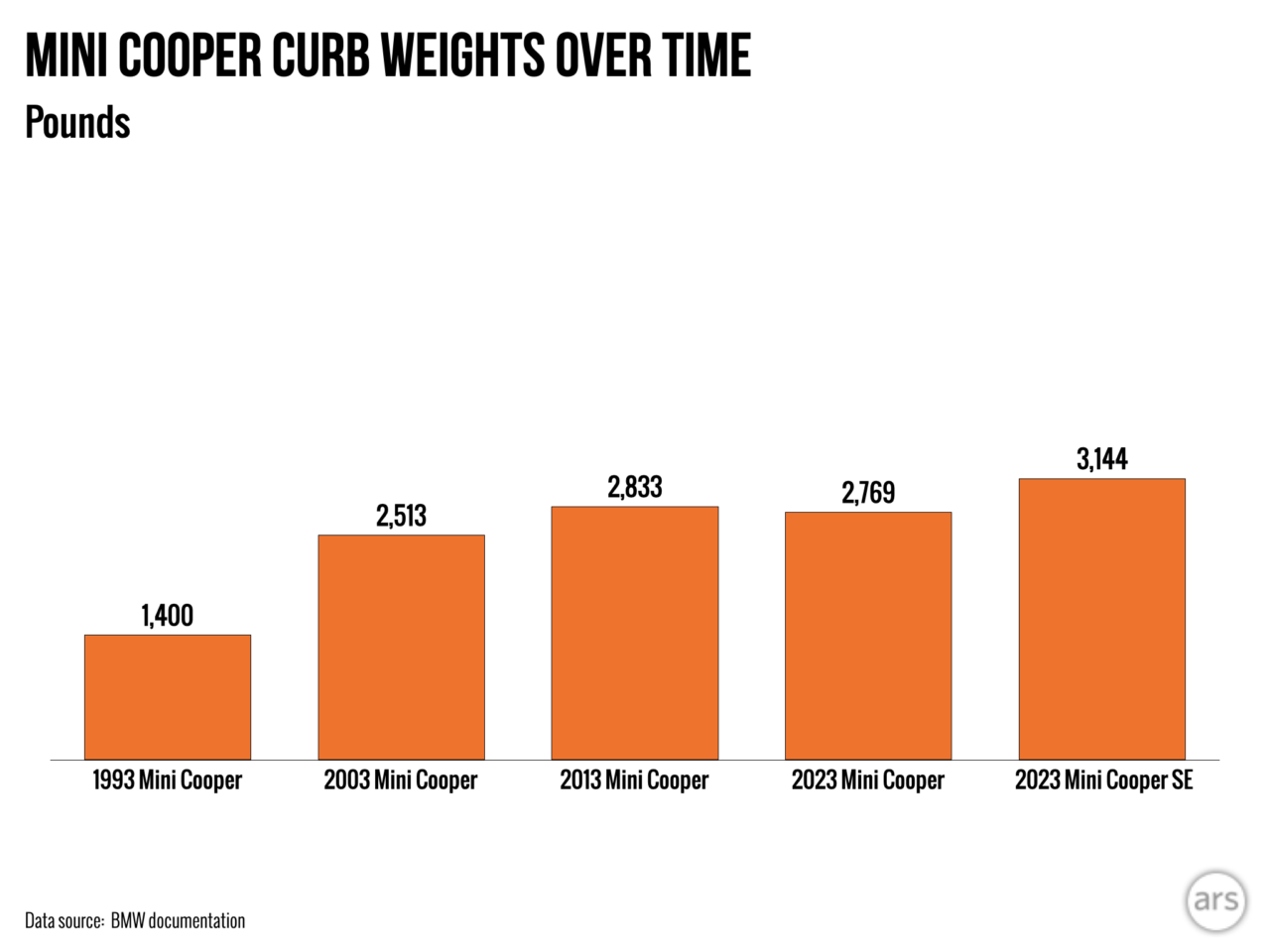The new standards require American automakers to increase fuel economy so that, across their product lines, their passenger vehicles would average 65 miles per gallon by 2031, up from 48.7 miles today. The average mileage for light trucks, including pickup trucks and sport utility vehicles, would have to reach 45 miles per gallon, up from 35.1 miles per gallon. Selling electric vehicles and hybrids would help bring up the average mileage per gallon across their product lines.
This was absolutely necessary. Car manufacturers have been abusing the previous rules which had lesser requirements for “light trucks”. Have you noticed how almost all ‘cars’ nowadays are the size of an SUV? This is a huge change and will affect so many more things positively(less fatal accidents for one) than JUST miles per gallon.
That truck loophole is terrible
It is, and it’s unfortunate that it hasn’t been eliminated which needs to be the end goal. Still, I think this will have hugely positive impacts on the culture around cars, and even if I’m wrong EV’s will lead the way which this bill still leads us to. If it’s all electricity and the manufacturers don’t need to worry about fuel conversion, I feel they’ll be less incentivized to make monster size vehicles since added weight is decreased performance with no cost benefits for them.
deleted by creator
It’s an example of why over-complicated laws are terrible. Trying to get too specific with the law’s prescriptions makes a weird game that results in weird plays and inefficient solutions.
I hope we have a breakthrough and battery technology. EVs are awesome though not ideal for pedestrians nor guardrails. Very, very heavy.
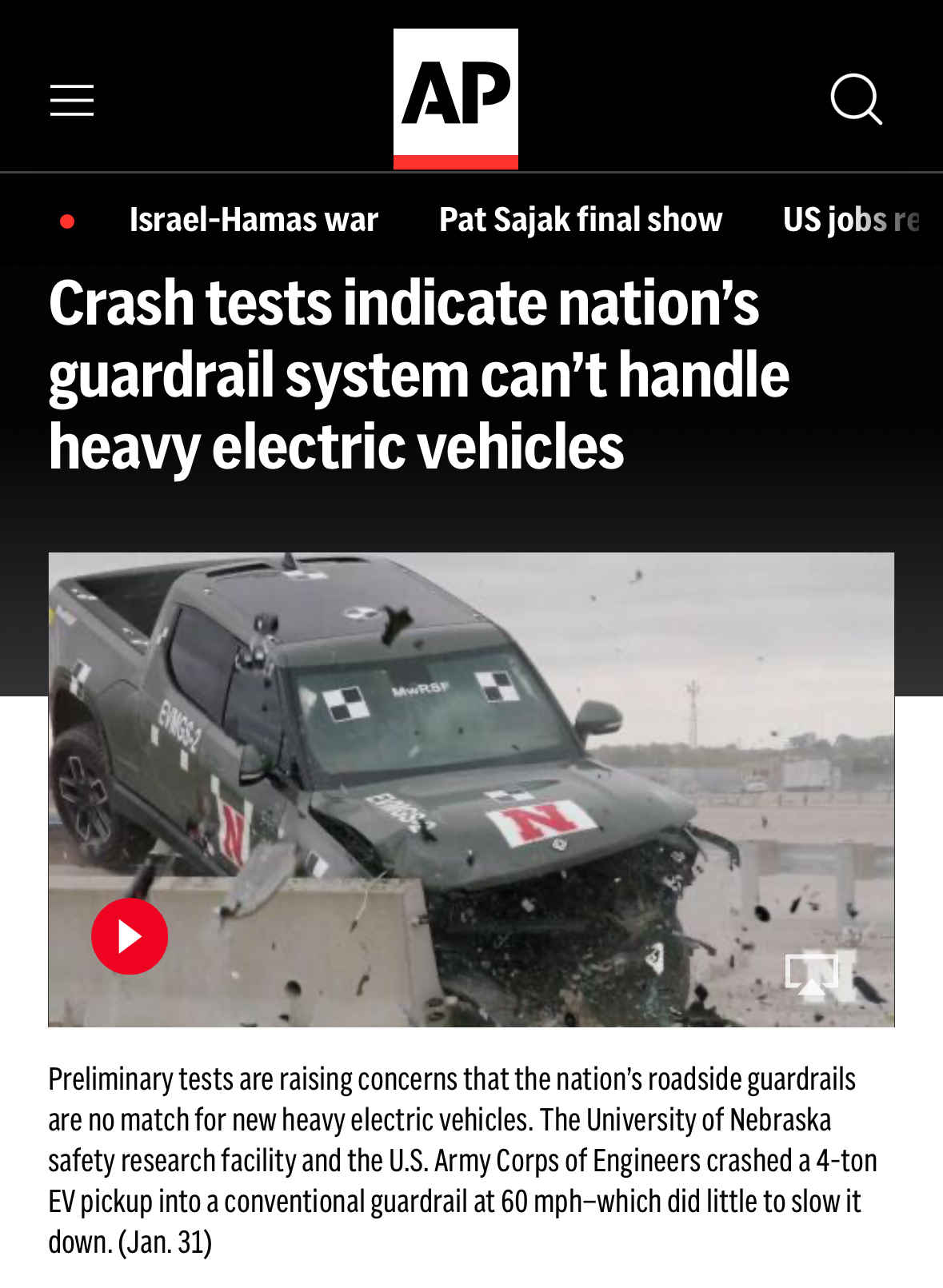
They really aren’t that much heavier. It is just one downfall that people try to play up because they want to spread anti human propaganda.
Most of the people buying giant ass vehicles don’t need them at all. If we took 90% of the trucks off the road and replaced them with electric cars the average weight would go down. So it would be good for “guardrails” if we care about them. The pedestrians wouldn’t get hit as high anymore as well making fatalities go down there as well.
Edit: quick search returned this “The study finds that a 4 inch-increase in vehicle front-end leads to a 22% increase in fatality risk for a pedestrian.”
Disclaimer: I am an EV owner.
EVs are quite a bit heavier when comparing within size class. From checking just a couple curb weights across similarly-sized vehicles, you can expect between 15% and 30% heavier.
But, to your point… if you instead compare between vehicles with a similar pricetag, EVs are about 15% lighter. When people go to budget a new vehicle, I expect many people are less willing to do the math to realize that trucks are extremely expensive to fuel and maintain, and so they’re lured in by the “utility” they provide, when in reality it’s substantially cheaper to rent one for the 10 days a year they need it.
With that said… you know what’s even better for humans than EVs? Trains. Buses. Diverse transit infrastructure!
“quite a bit”
vs.
merely about 15% to 30% more.
emotive language is fun!
Isn’t all non-quantitative language just… A Series Of Poor Choices? 😉
Love the name, BTW
Ok then let’s make the point more concrete ….
- the headline claims a 4t EV truck was too heavy for current guardrail standards. Ok, but the important part is the 4t, regardless whether it is EV
- my EV is 2t. Sure, the battery added a lot of weight over what a similar ICE car would have, but it’s far less impact than the existence of so many giant trucks that are so much heavier. Current guardrail standards are plenty to stop my SUV, despite it being EV
- current guardrail standards are enough to stop most EVs, except for a couple excessive models that are also excessive in size, poor efficiency, poor design. Even for a large EV pickup, most models weight well under 4t
Yup. Most of the people complaining about EV weight didn’t give a shit about ICE vehicles getting bigger and heavier for decades. They bought them by the parking lot.
I was complaining about it but I’m used to being a Cassandra now
As a pedestrian that has been hit twice, I will confirm that getting hit by a GMC Yukon was a worse experience than getting hit by a Toyota Tercel.
Crash tests indicate native guardrail system can’t handle heavy
electricvehiclesFixed that headline for anybody who doesn’t read the article (which is better at explaining some of the nuance). AP is good, but not totally immune to clickbait titles.
Not wrong, though some data for context here.
Awesome! Thanks!
There’s no reason to think the weight premium is here to stay. Going much over 350 to 400 miles of range isn’t really necessary, and there many models reaching that already. All further improvements in Wh/kg can go towards reducing weight, not increasing range.
By 2031 nobody will make “passenger vehicles” that aren’t “light trucks” unfortunately.
Yes it’s a little ridiculous. At least the “light truck” mpg requirement is getting increased too, though not as much as the car one:
The new standards require American automakers to increase fuel economy so that, across their product lines, their passenger cars would average 65 miles per gallon by 2031, up from 48.7 miles today. The average mileage for light trucks, including pickup trucks and sport utility vehicles, would have to reach 45 miles per gallon, up from 35.1 miles per gallon.
deleted by creator
That trend had been happening in no small part because of a loophole in fuel standards. This is (slowly) closing up that loophole.
They are also tightening fuel efficiency for light trucks.
Queue up “the Democrats are outlawing gas cars” handwringing by the conservative simps.
Queue up “the Democrats are outlawing gas cars” handwringing by the conservative simps.
I’m good with this change but we have to admit that functionally its not too far off the mark. Even the article notes “…strict new limits on tailpipe pollution that are designed to ensure that the majority of new passenger cars and light trucks sold in the United States are all-electric or hybrids by 2032…”
So while ICE isn’t being directly “outlawed” they are changing the rules to get a very similar result; the “conservative simps” won’t be wrong exactly when they say it.
Or gas vehicle manufacturers could spend real money on environmental r and d to meet the mark in the time allowed. Whatever it takes to lower our greenhouse gas emissions.
The push for more E.V.s comes as the world’s leading climate experts say that retiring the internal combustion engine is critical to staving off the most deadly effects of global warming.
Why would they do that? Ford literally stopped making cars in the US because it was more profitable to make trucks.
Well conceivably closing the truck loophole would put a stop to that. But it’s conceivable that instead of Ford responding to the new “innovate or die” law by innovating, it’ll respond by dying.
Whatever it takes to lower our greenhouse gas emissions
This attitude is why we need to be really, extremely sure about this climate change thing. Since we are sacrificing everything else to it, if it turns out to be a false alarm we will have fucked ourselves royally for no reason.
🙄 we should study it or something. /s
Way smarter people than you or I have already came to the conclusion that man-made climate change is a real thing. This isn’t a false alarm.
- you already quoted 2 possible technologies: Bev or phev.
- hydrogen would also fit. companies who think that’s still a practical solution are free to try it
- solar powered cars would also fit. Good luck with that
- if you can make “Mr Fusion” a reality, it would also fit
You can use weasel words to characterize it how you like but yes it’s very predictable that a lot of people won’t like this.
A lot of people won’t like what 2 degrees warming brings earlier. Weasel that.
I was impressed initially, even sat through the NY Times yapping about “Mr. Biden” and what “Mr. Trump” said about “Mr. Biden” (calling them both Mr. XY is really weird to me) but then I read that they are keeping the light trucks exception and all awe was replaced by utter resignation… sad.
They are…but tightening fuel economy for light trucks too. Which matters.
Would be nice if it was more, but this is what we’ve been able to get right now.
Fuel requirements are being raised for light trucks too.
0.362 Liters per 10 km
Beep boop I’m not a bot, might be incorrect.
We (Canadians) use L/100km more often.
A hybrid sedan might get 3 to 4 L/100km in ideal Canadian conditions using a lot more of the battery, closer to 5 in winter.
Your normal sedan ranges from 5 to 8. (40MPG = 7 L/100km)
An SUV ranges from 8 to 13. (25MPG = 10.9L/100km)
A pick up truck will be from 9 to 16 L/100km. (20MPG = 13.9L/100km)
Good but does anyone outside the US even use equivalent gasoline volume to measure electrical energy? Ergo, how much is that in kWh/100 km?
Well that’s impractical bc you have to know the kWh/litre or gallon if what kind of gas/diesel/E85/… you use.
Umm… I don’t? I pay for electricity in kWh. This is about electric cars.
deleted by creator
I think the point is that EVs are at 0L/100km, therefore lowering the average.
I thought the regulators count their energy consumption in the weird, ambiguous unit of “gasoline gallon equivalent” = 33.4 to 33.7 kWh.
We need laws to ban non-business ownership of trucks and large SUVs. They can only be privately rented or licensed by a business. Fuck solo commuters hauling nothing in huge vehicles.
I’d rather establish licensing/training requirements for light truck operation. Nobody likes it when someone takes away their stuff. But convince them that the only people allowed to operate such heavy machinery are “elite” and they’ll gladly take pride.
Normal passenger car driver’s licenses in most of North America have such a comically low bar because people need them for life. You lose your license, you can’t live. It’s not just harder. You physically cannot get to work, get food, meet friends, etc. It’s bonkers. Solving that problem is hard. But making sure that people who really absolutely shouldn’t be driving something as dangerous as a truck can’t get one “just because it’s cool” is a different, much easier solved problem.
I think that would leave too many loopholes open. I think the most effective path would be to:
Schedule a progressive increase in fuel prices: End subsidies on fossil fuels Implement a tax that reflects the environmental damage caused by fossil fuel use. Add on a tax that provides remediation of historical fossil fuel damages.
Take that schedule, add it to the purchase and maintenance costs of a vehicle, and require reporting this total cost of ownership as the most prominent figure in all advertising.
This is mpg across a product line. Not per vehicle and apparently without regard to production level or pricing. And since it’s an average across a product line an automaker could add a hybrid deluxe version at 300% markup that no one buys and still achieve compliance. Theoretically an automaker could actually worsen fuel economy if they added EV or hybrid versions to the product line.
I can’t even sarcastically joke these standards were written by industry.
I think you’re wrong about the averaging rules… This appears to be an update to the CAFE targets which average based on unit quantity across all cars and all light trucks you manufacture. You can’t manufacture 10 one-off “hypermiler” sku’s to offset your millions of cars.
That said, CAFE is still a worthless law that has ruined the American automobile market in more ways than one, and this policy update will likely do almost nothing to improve emissions.
I did look into it and yes, it does look like the averaging is done harmonically and not arithmetically. That’s how it cuts the outlier strategy.
So I guess the theory of gaming the system that hard is not as possible or at least mitigated to an effective degree.
Still though, even that they’re using harmonic mean doesn’t deviate to far from the reality this regulation was written by industry.
This is the best summary I could come up with:
In April, the Environmental Protection Agency issued strict new limits on tailpipe pollution that are designed to ensure that the majority of new passenger cars and light trucks sold in the United States are all-electric or hybrids by 2032, up from 7.6 percent last year.
In addition to the regulations, the 2022 Inflation Reduction Act, championed by Mr. Biden, provides tax credits for buyers of new and used electric vehicles, along with incentives for charging stations and grants and loans for manufacturers.
But at a rally in Arizona on Thursday, Mr. Trump struck an uncharacteristically supportive note on electric vehicles as he heaped praise on Elon Musk, the chief executive of Tesla.
“Not only will these new standards save Americans money at the pump every time they fill up, they will also decrease harmful pollution and make America less reliant on foreign oil,” Transportation Secretary Pete Buttigieg said in a statement.
Dan Becker, director of the Safe Climate Transport Campaign at the Center for Biological Diversity, said that the mileage rule should have been stronger, calling it “weak” and saying the administration “caved to automaker pressure.”
“The Biden Administration is willing to sacrifice the American auto industry and its workers in service of its radical green agenda,” Russell Coleman, the Kentucky attorney general, who is leading the lawsuit against the E.P.A., said in a statement.
The original article contains 1,137 words, the summary contains 225 words. Saved 80%. I’m a bot and I’m open source!
deleted by creator




